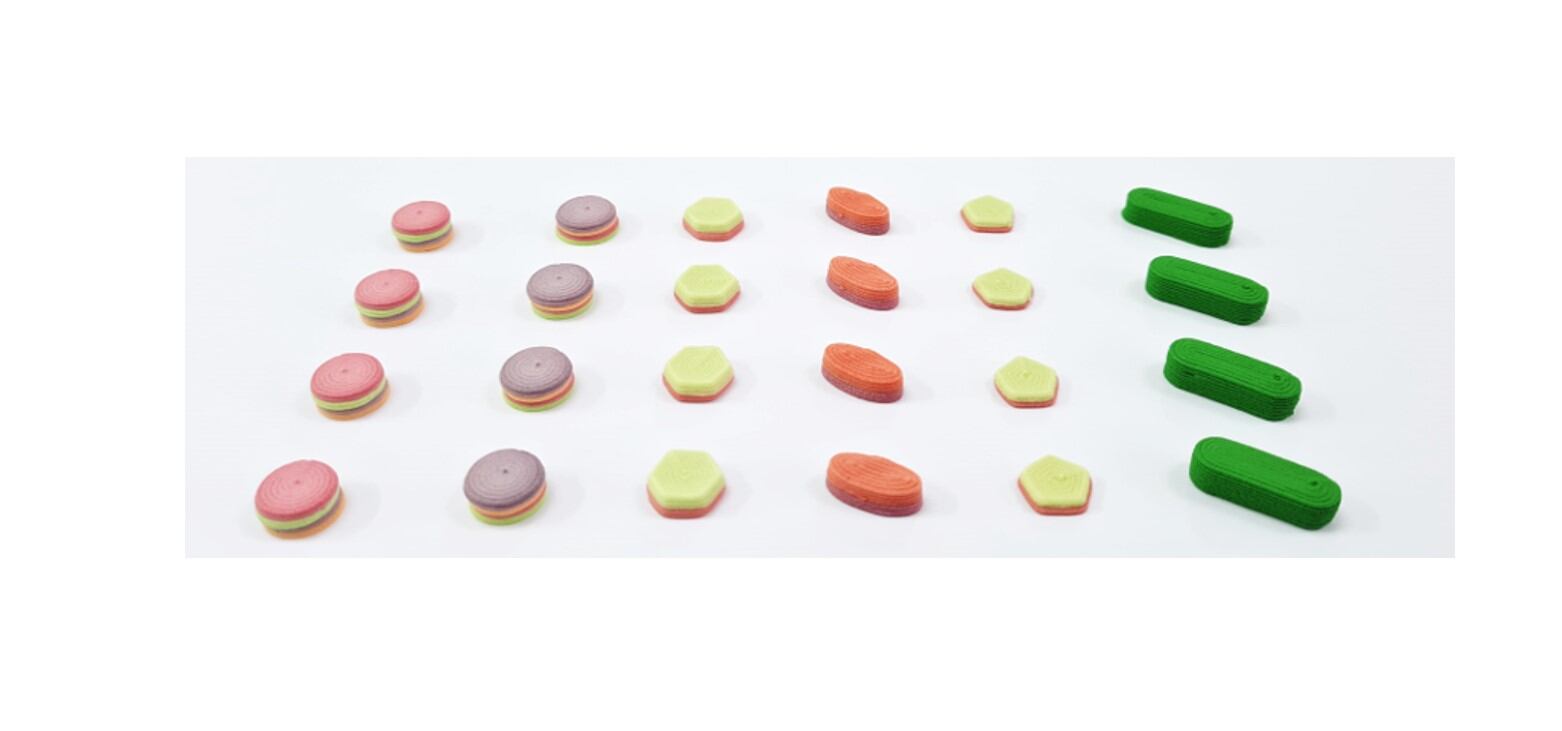The co-founders of Craft Health are pharmacists by training, and they came up with the idea of 3D printing medicines to address the common polypharmacy issue in Singapore and elsewhere.
It is a common scene where patients visit a clinic or hospital and are prescribed with many medications, which can be complicating due to varying doses and frequency.
Craft Health was initially focused on pharmaceutical drug delivery solutions, however medicines require a longer regulatory route to approval, hence the firm explored the nutraceutical field.
Supplement customisation
So far, the firm has developed a platform consisting of 3D printers, formulation database of active ingredients and hardware solutions for its technology.
CraftMake, its 3D printer, uses a semi solid extrusion method which is a gentle process with no heat or UV curing involved.
This means that active ingredients can withhold its integrity without any degradation.
The active ingredients are mixed with its formulation in a dry form and rendered into a paste, before adding to the 3D printer to craft the desired shape.
Dr Goh Wei Jiang, co-founder and CEO of Craft Health, said its 3D printers are also optimised for high volume printing.
According to him, it takes around 10 seconds to print a tablet with a weight of 100mg. The firm can scale up or down depending on how big each tablet is or how complicated the design is. An eight-hour shift can print around 3,000 to 5,000 tablets.
The firm also develops proprietary formulations, what it calls CraftBlends for varied controlled release.
It can create different layers of ingredients for immediate, delayed, or sustained release.
The active ingredients are mixed with this formulation with the desired controlled release profile before transferring to the 3D printer.
“We are able to control how fast or slow an active ingredient is released from the supplement. For instance, the first layer can be a probiotic, the second layer can be vitamin C for sustained release, and the third layer can be vitamin B programmed for immediate release,” Goh told NutraIngredients-Asia.
Watch the video to hear from Goh on Craft Health’s offerings.
Challenges
Although 3D printing is not a new concept or technology, the technique that Craft Health developed for nutraceuticals comes with its own challenges.
Since it works with paste-like materials which have a higher viscosity, the 3D printer has to have enough force to deposit the paste accurately.
“At the same time, paste materials tend to be compressive which means they tend to continue to flow out even after printing is ceased, so there is always a problem of leakage. Even though it might be a small leakage, for a small tablet, the error is substantial,” Goh pointed out.
The firm has developed an in-house method for mitigating the leakage, allowing more precise dosing, especially for small tablets.
Cost
In terms of cost, Goh said the bulk of it comes from the use of active ingredients.
“Because we are able to combine different actives in a single polypill, it becomes more cost effective to 3D print.”
Craft Health is currently setting up a production line of 3D printers and clean rooms in Singapore and hopes to work with companies in the personalised nutrition space.
The firm is also working with a local hospital to explore the technology in the medicine field.
In US, Multiply Labs does 3D printing of supplements, while UK-based Nourished 3D prints gummy supplements.

